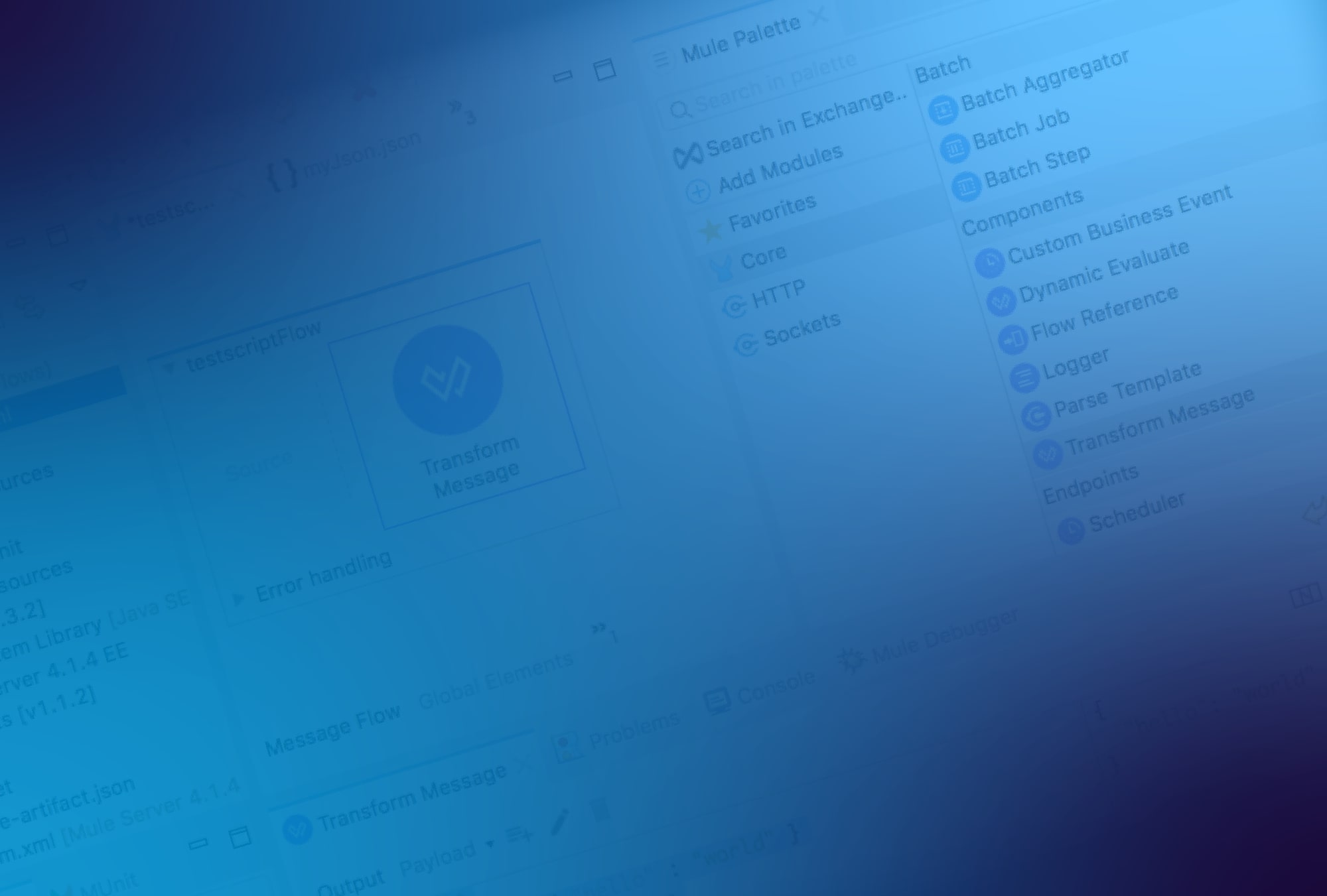- Services
- Solutions
- Technologies
- Resources
- About
-
- +44 (0)203 743 8014
×

)
)
This course is for software developers who have mastered the fundamentals of creating Mule applications with Anypoint Studio™ and Anypoint Platform™ and now want to learn the skills and best practices to build production-ready integrations — applications that apply essential integration patterns to take on the production challenges of distributed communication. This course, together with the Anypoint Platform Development: Production-Ready Development Practices course, prepares you to take the MuleSoft Certified Developer - Level 2 exam.
You will automatically receive two exam attempts if you complete both courses and have a current MuleSoft Certified Developer - Level 1 certification.
4 days in-person
4 days online
Intermediate
At the end of this course, students should be able to use best practices to:
You'll learn from some of the best trainers in the industry. The training will be tailored to your needs and budget. We can arrange training for your employees (groups for up to 12 people) whenever it suits you. We'll even adapt the standard courses according to your requirement.
Not the course you were looking for? We have a range of courses to suit everyone.
Has your team mastered the fundamentals of MuleSoft? Book an enquiry and take your team to the next level with our instructor-led training courses.
We are passionate and share the joy of igniting ideas to fuel business visions. We are confident and are not afraid to boldly go where we’ve never been. We are also very friendly and approachable people who love to solve problems. Give our curious intelligent learners a challenge and we will make it work.
[fa icon="phone"]+44 (0)203 743 8014
[fa icon="phone"]+44 (0)203 875 5669 (Support)
[fa icon="envelope"]info@infomentum.co.uk
[fa icon="map-marker"]7th Floor
68 King William Street
London, EC4N 7HR, UK